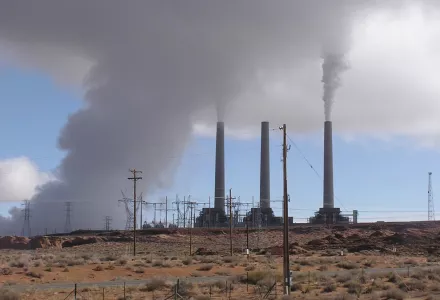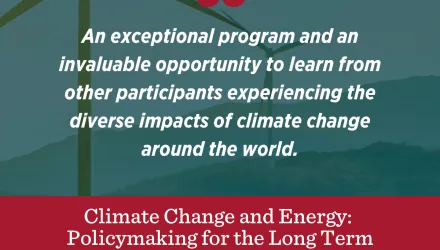
An essential element in the portfolio of climate solutions required to rapidly achieve net zero emissions is flue gas carbon capture and storage, whereby carbon can be sifted from emission streams before it enters the atmosphere and safely sequestered in geologic storage systems. Despite its importance in the climate tool portfolio, flue gas capture capacity is currently much less than reasonable estimates of its potential. States around the world are searching for policies by which to incentivize emitters to invest in carbon capture and storage (CCS) and hasten the technology’s rollout. We survey five leading polities (United Kingdom, Netherlands, Norway, United States, and California) in their efforts to kick-start the deployment of CCS and assess the strengths and weaknesses of each territory’s scheme.
The complete text of this Viewpoints is available at the link below.
Dillon W. Smith
Researcher, London, UK
Umang Bhattarai
Researcher, New Haven, CT, USA
Wake Smith
Lecturer in Yale College, New Haven, CT, USA
Research Fellow, Mossavar-Rahmani Center for Business & Government, Harvard Kennedy School, Cambridge MA, USA
Viewpoints present policy proposals, considered opinions, and commentary by distinguished policymakers, leaders from business and non-governmental organizations, and scholars. The Harvard Project on Climate Agreements does not advocate any specific climate-change-policy proposals. Statements and views expressed in Viewpoints are solely those of the author(s) and do not imply endorsement by Harvard University, the Harvard Kennedy School, or the Harvard Project on Climate Agreements.
Smith, Dillon W, Umang Bhattarai and Wake Smith. “Comparative State Economic Interventions in the Carbon Capture and Storage Market.” September 2022



